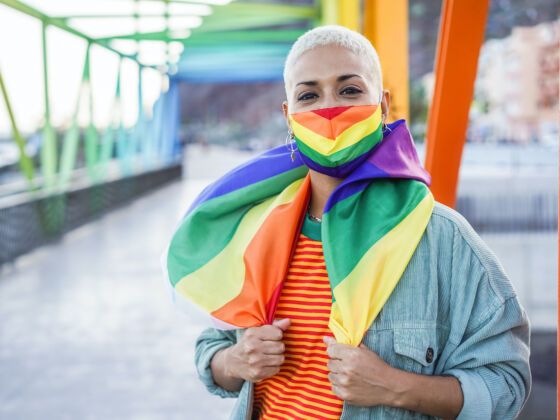2014 has been a watershed year for LGBT people around the world. LGBT rights are coming to the forefront in many countries. Advertisers are taking notice of the LGBT travel market, and brands are investing in making travel more inclusive for LGBT people. Amidst the political and social tragedies that have occurred this year, we have had many successful moments worthy of our pride.

7 Reasons LGBT Travelers Can Be Proud of 2014
1. Marriage equality is gaining momentum around the world.
2014 was the tipping point for marriage equality in the United States. Twenty of the nation’s 50 states have legalized same-sex marriages bringing the total to 35 with marriage equality. Fifteen states still have bans, but the tide is clearly turning in our favor. Internationally, we’re seeing similar patterns. Scotland, England, Wales, and Luxembourg all legalized same-sex marriage this year joining in numerous European countries where it is already legal. While marriage equality does not necessarily mean a country is affirming of LGBT people, it does mean that the government is taking steps toward protecting LGBT citizens and travelers.
2. We’ve realized that LGBT people travel WAY more than the average population.
85% of gay and 77% of lesbian Americans have passports and 54% of those LGBT people have used their passport in the past year. Compare that to less than half of the general population.
3. Tourism boards are finally investing in trans* inclusive travel.
In the past, trans* people have been lumped into LGBT tourism, but the reality is that there are different needs and concerns for different parts of the LGBT community. This year, the Greater Fort Lauderdale Convention & Visitors Bureau commissioned a study on trans* travelers. The study is an effort to learn about the needs of trans* travelers and make Fort Lauderdale more trans* inclusive. Thanks Fort Lauderdale!
4. Zakhele Mbhele became the first openly gay member of the South African Parliament.
5. The Indian Supreme Court ruled that the state must protect transgender people from discrimination and harassment.
6. Last August, 8,000 athletes from 50 countries went to Cleveland, Ohio to compete in the 2014 Gay Games.
The games are equal parts sports competition and human rights convention, and athletes from around the world openly compete. For many athletes, this is a huge personal risk to their livelihood in their home country. During the Games, President Obama made a statement acknowledging the difficulty many athletes face in their home country. In his message, he reminded the athletes of his personal support and praised their bravery. Some LGBT people may role their eyes at President Obama’s validation, but it sends a strong message to people who may have never had their identity validated.
7. We’re advancing in our fight against reparative therapy practices.
Earlier this year, a court in China ruled in favor of a gay man who was suing a psychologist for using electric shock reparative therapy. Reparative therapy has been renounced by every major psychological organization in the world, but is still common practice in many countries. This case is a step in the right direction for China and may curb the number of clinics offering harmful “treatments.”